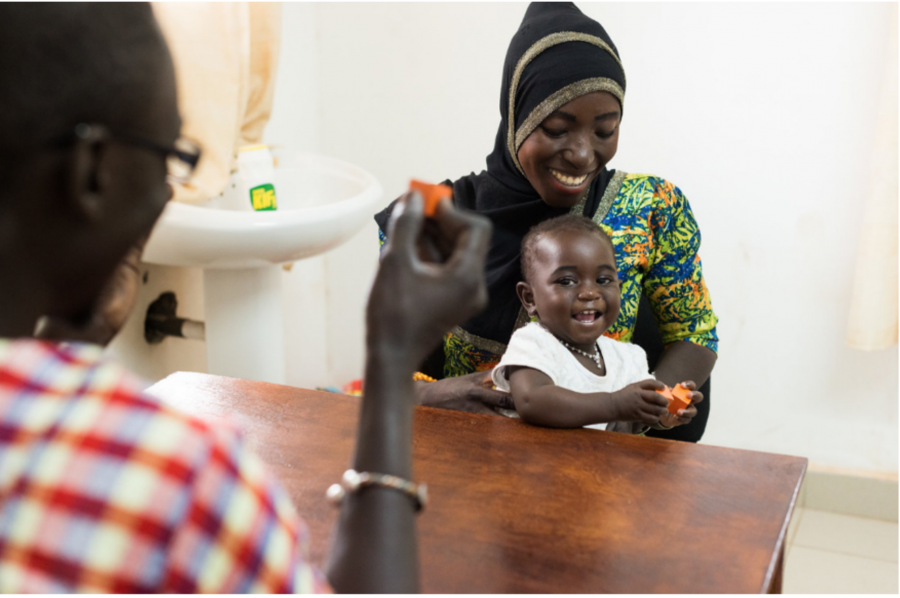The relationship between nutrition, growth, and neurodevelopment across infancy and early childhood in The Gambia

In the time between conception and a child’s second birthday, their brain grows more quickly and is more amenable to change than any other period in the life-course. This presents a window of great opportunity, in which nurturing care has life-long benefits, along with immense vulnerability, as the developmental impact of adversity is difficult to overcome. Adequate nutrition, which provides the building blocks for the developing brain, is particularly important during this window. We mapped the longitudinal relationship between infant nutrition, growth and cognitive development from birth to two years of age and explored the roles of social and environmental factors in early development among a cohort in rural Gambia, West Africa.
Results suggested that cognition in early infancy was strongly associated with nutritional factors, whereas measures in early childhood were associated with both nutrition and factors relating to the family and environment. Results specifically highlighted the importance of nutrition and growth within the first 6 months of life, suggesting the need for a renewed focus on this developmental window.
Speaker
Samantha McCann completed an undergraduate degree in Medical Neuroscience at the University of Sussex in 2015 and an MSc in Public Health at the London School of Hygiene & Tropical Medicine (LSHTM) in 2016. She then worked at the MRC Unit The Gambia at LSHTM, where she led an in-depth longitudinal study of infant neurodevelopment, which used brain imaging techniques and eye-tracking technology to measure infant development in a rural population. She recently completed a doctorate in Global Health at King’s College London (KCL) and is currently a post-doc in the Department of Women and Children’s Health, KCL. Sam’s main research interest is understanding how poverty-associated factors impact neurodevelopment and translating this understanding into effective interventions.
Host
Co-hosted by
Please note that the time listed is British Summer Time (BST)
Admission
Contact